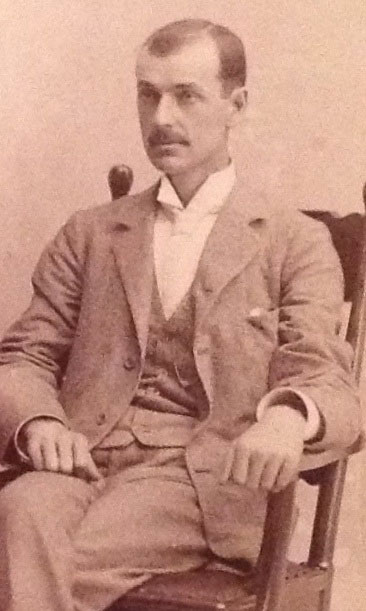Verner Z. Reed (1863-1919)
+ Add Author to My Preferences
 Verner Zevola Reed was an American capitalist and author. He was born in Richland County, Ohio on 13 Oct 1863. He moved to Colorado in 1893. He became one of Colorado's most important and enterprising pioneers and played an important role in Colorado's early history and became one of the state's wealthiest citizens. In the late nineteenth century, he was involved primarily in the gold mining industry that developed around Cripple Creek, Colorado, as well as various silver and copper mining operations in Colorado. In 1901, he earned a $1 million commission from the sale of Winfield Scott Stratton's Independence Mine to an English syndicate, and having made his fortune in minerals, he subsequently invested in real estate in and around Colorado Springs, Colorado and through ventures such as the Western Sugar Land Company.
Verner Zevola Reed was an American capitalist and author. He was born in Richland County, Ohio on 13 Oct 1863. He moved to Colorado in 1893. He became one of Colorado's most important and enterprising pioneers and played an important role in Colorado's early history and became one of the state's wealthiest citizens. In the late nineteenth century, he was involved primarily in the gold mining industry that developed around Cripple Creek, Colorado, as well as various silver and copper mining operations in Colorado. In 1901, he earned a $1 million commission from the sale of Winfield Scott Stratton's Independence Mine to an English syndicate, and having made his fortune in minerals, he subsequently invested in real estate in and around Colorado Springs, Colorado and through ventures such as the Western Sugar Land Company.
In the early years of the twentieth century, he and his wife, Mary, sailed for Europe, where they lived for more than a decade in Paris, Rome and the South of France. After his return to America in 1913, he continued to expand his fortune with the accumulation of oil fields in Wyoming.
In addition to his business interests, he also made extensive studies of the Mythologies of the indigenous peoples of North America, especially among the Utes and some of the Pueblo tribes. He was widely known as a lecturer on peace, international politics and kindred subjects. He was author of several books: Lo-To-Kah, Tales of the Sunland, Adobeland Stories and The Soul of Paris, and had also contributed essays, editorials and stories to magazines and newspapers nationally.
In 1917, he was one of the original of the Special Mediation Commission appointed by President Woodrow Wilson soon after the United States went to war (World War I) to undertake adjustment of industrial labor trouble. He is credited with having played a large part in quieting unrest which threatened war preparations. The commission late in 1917, made a trip of many weeks through the West investigating deportations and dissatisfaction in the Arizona copper district, labor troubles on the Pacific Coast, in Colorado, and in Minnesota and Saint Paul, Minnesota, and differences between the Chicago packers and their employees. Subsequently, he took a prominent part in the investigation and settlement of trouble in the Louisiana oil fields.
He was married to Mary (Johnson) Reed. They had three children: Joseph, Verner, Jr., and Margery.
He died in Coronado, California on 20 April 1919. He was buried in the Mount Olivet Cemetery, Wheat Ridge, Colorado. He left his wife an estate valued at approximately $20 million (approximately $280 million in 2013 dollars), which she used in the pursuit of various philanthropic endeavors in the Colorado community, such as Margery Reed Hall and construction of a new library on the campus of the University of Denver. The Denver Post once cited her as "Colorado's richest widow".
Source: Wikipedia - the free encyclopedia

